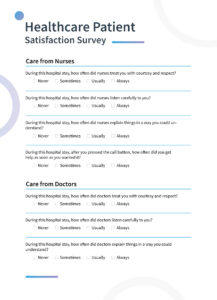Entering into a partnership with a medical billing service can be a game-changer for your healthcare practice. It frees up your administrative staff, optimizes revenue cycles, and allows your team to focus more on patient care. However, the success of this collaboration hinges heavily on one critical document: a well-crafted medical billing services contract template. This isn’t just a formality; it’s the foundation of your professional relationship, outlining expectations, responsibilities, and protections for both parties.
Without a clear and comprehensive agreement, you could face misunderstandings, financial disputes, or even legal complications down the line. That’s why understanding what goes into a robust contract is absolutely essential before you shake hands on any deal. It ensures transparency, accountability, and a smooth operation, safeguarding your practice’s financial health and reputation. Let’s delve into the crucial elements that make an effective contract.
Why a Solid Medical Billing Services Contract is Non-Negotiable for Your Practice
Imagine running your practice without a detailed blueprint for how your billing is handled. Sounds risky, right? That’s precisely why a strong medical billing services contract isn’t just a suggestion; it’s a necessity. This document acts as your legal shield, defining the scope of services, fee structures, performance metrics, and compliance requirements. It sets the ground rules, ensuring that both your practice and the billing service are on the same page from day one, preventing any nasty surprises.
One of the primary reasons to invest time in this contract is dispute resolution. No one likes to think about potential conflicts, but they can arise. A well-defined contract includes clauses for how disagreements will be handled, whether through mediation, arbitration, or other legal avenues. This foresight can save you significant time, money, and stress should any issues occur, protecting your practice’s interests without resorting to drawn-out legal battles.
Key Components You Can’t Afford to Miss
When you’re reviewing or creating your contract, several elements are absolutely critical to include. These are the pillars that support a clear, fair, and legally sound agreement, protecting both your revenue and your relationship with the billing service. Neglecting any of these could leave significant loopholes that might be exploited.
- Scope of Services: Clearly define what the billing service will and will not do. Will they handle coding, claim submission, denial management, patient invoicing, or all of the above? Specificity here is key to avoiding ambiguity.
- Fee Structure: Outline how the billing service will be compensated. Is it a percentage of collections, a flat fee per claim, or a monthly retainer? Detail payment terms, invoicing cycles, and any late payment penalties or incentives.
- Term and Termination: Specify the contract duration and conditions under which either party can terminate the agreement. Include notice periods and any penalties for early termination.
- Confidentiality and HIPAA Compliance: Given the sensitive nature of patient data, robust clauses for confidentiality and strict adherence to HIPAA regulations are paramount. This protects both patient privacy and your practice from hefty fines.
- Performance Expectations and Reporting: How will the billing service’s performance be measured? Include specific metrics such as clean claim rates, average days in accounts receivable, and denial rates. Also, specify the frequency and format of performance reports.
Furthermore, consider the implications of technological integration. Your contract should address how patient data will be shared securely between your practice management system and their billing software. This includes outlining data security protocols, encryption standards, and who bears responsibility for data breaches. A robust contract anticipates these challenges, providing solutions before they become problems.
Ultimately, this initial H2 section underlines that a comprehensive medical billing services contract template isn’t just administrative overhead; it’s a strategic asset. It protects your practice, optimizes your financial operations, and ensures that your partnership with the billing service is built on a foundation of mutual understanding and legal solidity. Think of it as an investment in your practice’s future stability.
Navigating the Specifics: What to Include Beyond the Basics
While the fundamental components form the backbone of your agreement, a truly effective medical billing services contract goes deeper, addressing specific scenarios and contingencies that might not be immediately obvious. Think about the finer points that could impact your revenue cycle or legal standing. These details often distinguish a merely adequate contract from one that offers truly comprehensive protection and clarity for both parties.
Consider the importance of regular audits and quality control. Your contract should stipulate that you retain the right to audit the billing service’s work periodically. This isn’t about mistrust; it’s about ensuring accuracy and compliance. Include provisions for how and when these audits will occur, who will bear the cost, and what corrective actions will be taken if discrepancies are found. This proactive approach ensures consistent quality and helps maintain financial integrity.
Another critical aspect often overlooked is intellectual property. Who owns the data collected and processed by the billing service? While patient data always remains confidential and under HIPAA, the analytical data derived from your practice’s billing activities might have specific ownership clauses. Clarifying this upfront prevents potential disputes over data usage and reporting in the future, particularly if you decide to switch services.
- Indemnification: This clause protects your practice from liabilities arising from the billing service’s errors or negligence. It ensures they take responsibility for their actions.
- Insurance Requirements: Mandate that the billing service carries appropriate professional liability and data breach insurance, providing an extra layer of financial protection for your practice.
- Governing Law: Specify which state’s laws will govern the contract, simplifying any potential legal proceedings.
- Updates and Training: How will the billing service stay abreast of constant changes in coding, payer rules, and healthcare regulations? The contract should address their commitment to ongoing education and adaptation.
Finally, remember to incorporate a clear process for amendments. Healthcare regulations and your practice’s needs can evolve. A well-designed contract will include a clause detailing how future changes or additions to the agreement can be made, ensuring flexibility and adaptability without requiring an entirely new document. This forward-thinking approach makes the contract a living document that can grow with your partnership.
Ultimately, a robust medical billing services contract template is more than just a piece of paper; it’s a strategic tool that defines your partnership, protects your interests, and lays the groundwork for a successful, long-term collaboration. It streamlines operations by setting clear expectations and provides a crucial safety net for your practice’s financial well-being. Investing time and effort into crafting a comprehensive agreement ensures that both parties understand their roles and responsibilities, fostering transparency and trust.
By meticulously detailing the scope of services, financial arrangements, compliance requirements, and contingency plans, you empower your practice to thrive while delegating complex billing tasks with confidence. This proactive approach not only mitigates risks but also enhances efficiency, allowing your team to channel their energy where it matters most: delivering exceptional patient care. A well-executed contract truly is the cornerstone of a harmonious and productive billing partnership.



